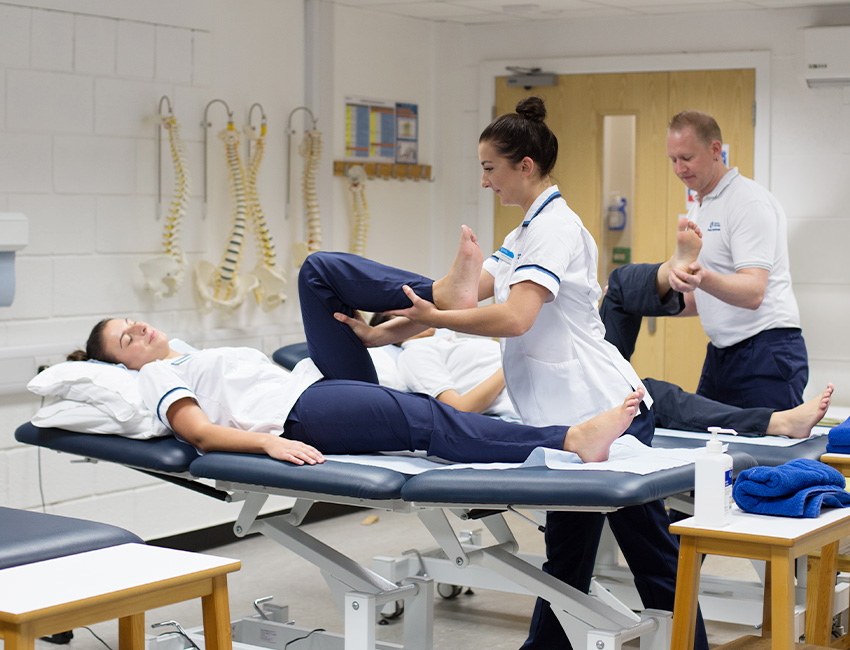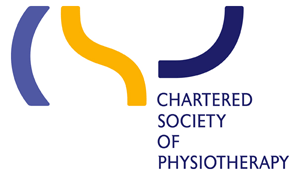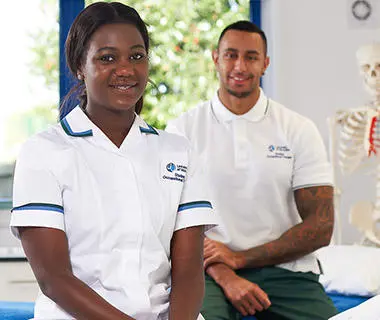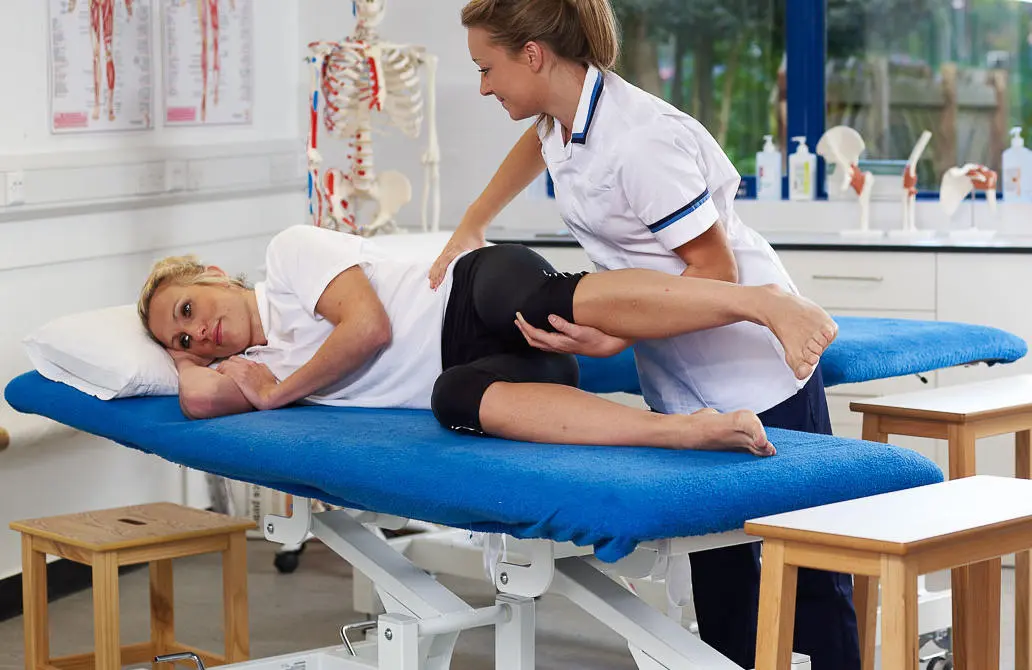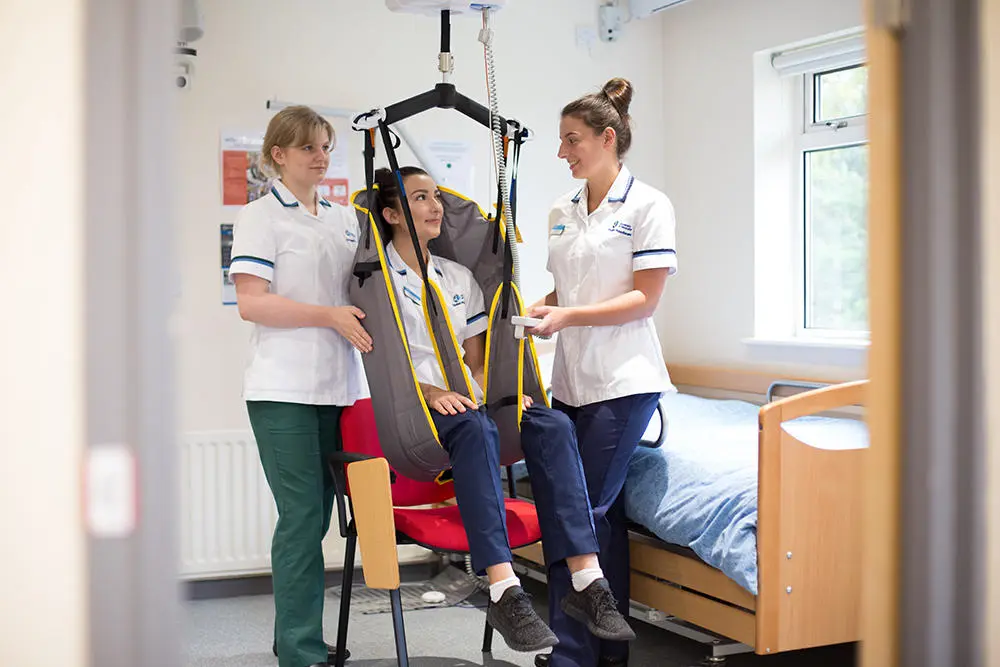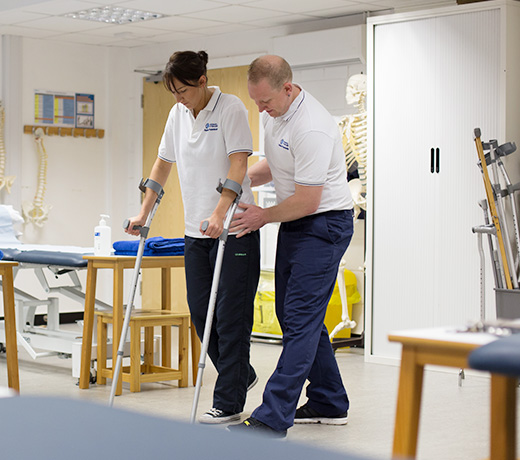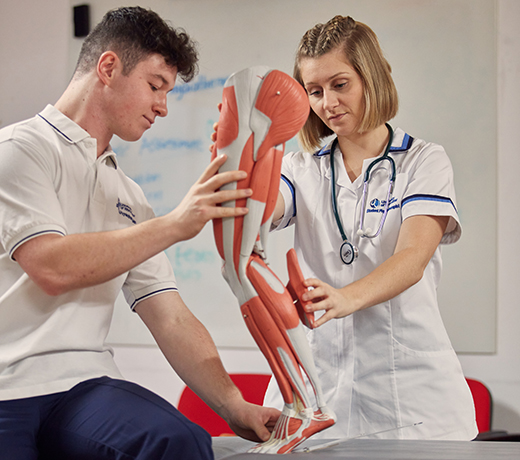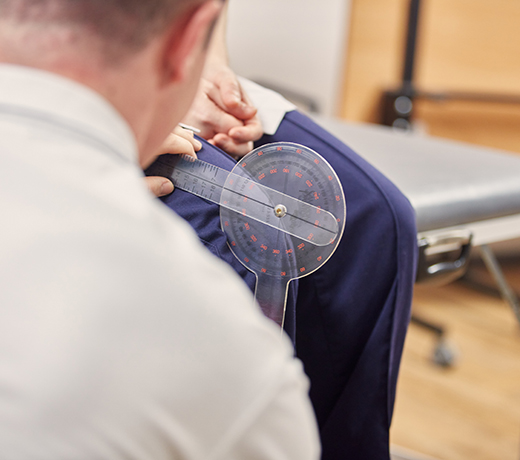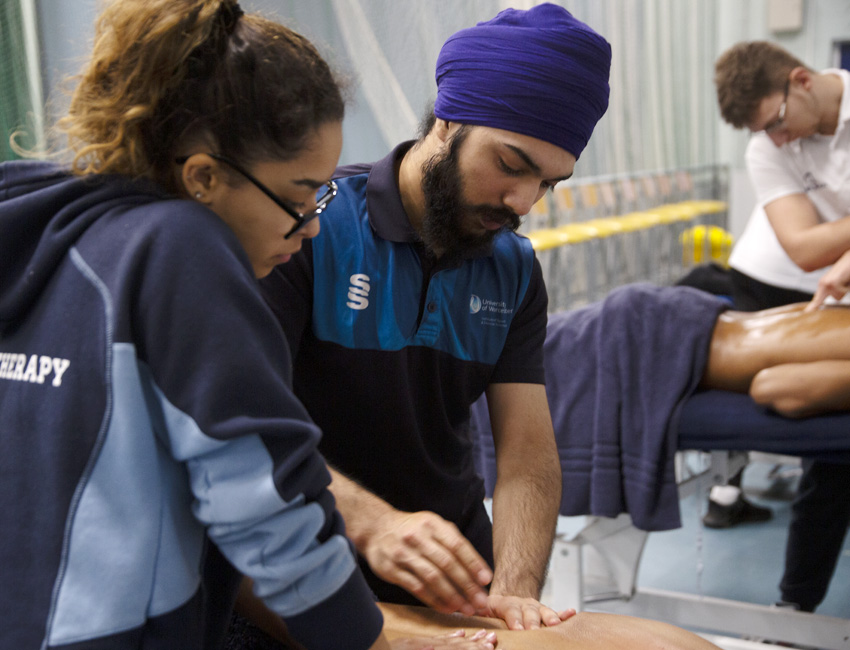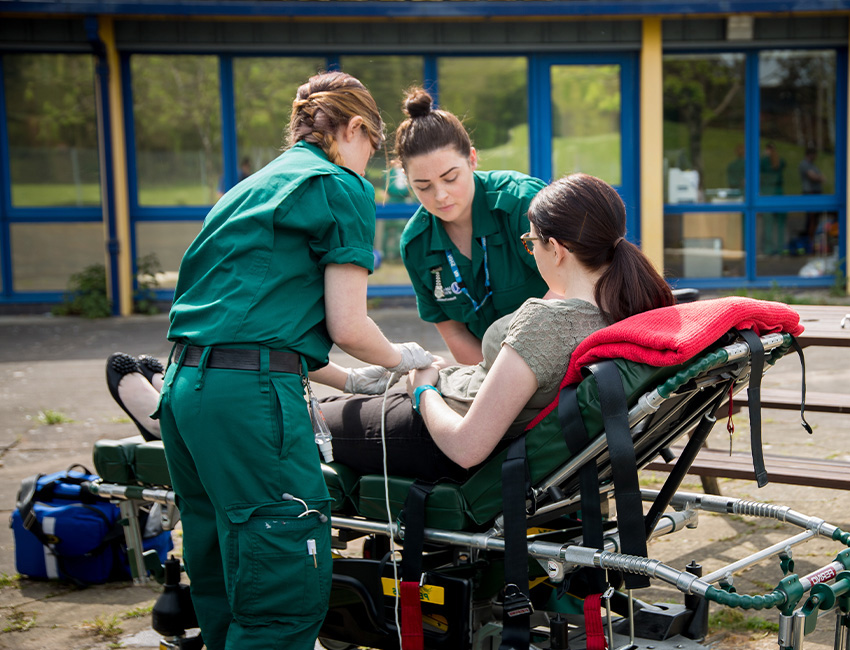At Worcester, our course has a strong practical focus, incorporating case-based learning and extensive opportunities to interact with patients and professionals in class, with placements offered across the West Midlands.
for graduate prospects in the West Midlands
grant that you won't need to pay back
Accredited by the Chartered Society of Physiotherapy (CSP) and validated by the Health and Care Professions Council (HCPC). This means that when you graduate, you can apply for registration to practice as a Chartered Physiotherapist.
First for jobs
The University of Worcester is first in the UK for sustained employment, further study or both, five years after graduation (excluding specialist institutions) - Longitudinal Educational Outcomes Survey 2024. Read more.
Overview
After building a strong foundation of anatomical knowledge, you will learn how to diagnose and rehabilitate across a range of conditions, as well as how to prevent illness and disease. You will gain substantial practical experience in our purpose-built simulation laboratories and a range of real-life clinical environments, such as hospitals.
Our team of experienced physiotherapists will supervise you as you complete 1,000 hours of placement in different clinical, health, and social care settings. This gives you familiarity with the profession, patients, and various conditions.
You’ll study alongside students from our Medicine, Nursing, Social Work, and Occupational Therapy courses, providing opportunities to learn from each other and preparing you to work seamlessly in a ‘one workforce’ team in the NHS.
Placements
You will undertake placement hours every year during your three-year degree. Full-time practice learning placements equate to 37.5 hours of practice learning each week of the 6-week placement block. These learning hours will be formally recorded and signed by an authorised signatory.
Course content
Our courses are informed by research and current developments in the discipline and feedback from students, external examiners and employers. Modules do therefore change periodically in the interests of keeping the course relevant and reflecting best practice. The most up-to-date information will be available to you once you have accepted a place and registered for the course.
Careers
The broad scope of physiotherapy is one of its assets, making it an exciting and varied career.
You will become a scientifically oriented clinician with transferable intellectual and practical skills. You’ll also develop the advanced problem-solving and leadership skills required to succeed in the dynamic healthcare environment.
Physiotherapists are in demand across the UK and abroad, which creates many exciting job opportunities.
You could:
- become a senior physiotherapist or service manager in the NHS in a hospital, care home, GP practice, or other setting
- specialise in a specific area, like sports physiotherapy, stroke care, or working with children
- work for a professional sports club
- become self-employed and set up your own practice
- move into research or training.
Course highlights
Teaching and assessment
The University places emphasis on enabling students to develop the independent learning capabilities that will equip you for lifelong learning and future employment, as well as academic achievement. A mixture of independent study, teaching and academic support through the personal academic tutoring system enables you to reflect on progress and build up a profile of skills, achievements and experiences that will enable you to flourish and be successful.
Teaching and assessment contents
Teaching and learning are you-centred, reflecting the philosophy of constructivism whereby you are active participants in your learning experience and learn with and from other students. Methods of assessment reflect those likely to be encountered in Physiotherapy practice and include assessment of knowledge, skill, application and evaluation in preparation for employment. The academic modules in the course consist of shared modules with Occupational Therapy students and specific Physiotherapy modules. The Physiotherapy modules are for Physiotherapy students only and cannot be taken outside of the programme. All academic modules are underpinned by a constructivist philosophy within the spiral curriculum.
Examples of learning and teaching methods used include:
- Lead lectures
- Practical classes
- Seminars
- Tutorials
- Problem-solving
- Oral presentations
- Presentation of seminar papers
- Tutorial/seminar discussions
- Use of e-learning (pre-reading, pre-recorded lectures, self-assessment quiz and online discussions)
- You-led Problem-Based Learning
- Peer learning and peer feedback
- Case study-based scenarios.
The spiral approach to learning is introduced in level four with the learning and teaching of fundamental assessment, treatment and clinical reasoning skills. These are then further enhanced and developed in levels five and six within physiotherapy modules via more complex case study-based scenarios to facilitate your learning.
Learning in the university setting is complimented by practical and technical skill development, which uses a large, purpose-built practical room with plinths and practical physiotherapy equipment, use of the skills and simulation suite, a large community hall space and Ability House, a home setting. You are supported to achieve the required level of competency, moving from basic skills acquisition to advanced skills requiring complex clinical reasoning. Assessment of clinical skill is facilitated using practical exams, and Objective Structured Clinical Examinations (OSCE), developmentally across the first two years of the programme. Valuable learning opportunities are provided using service users/carers and other professionals in both teaching and assessment strategies at all levels. With opportunities for interprofessional learning both within the university and the clinical practice setting, including during simulated practice where you have the opportunity to work with a range of professionals including occupational therapists, nurses and social workers.
Your meetings with personal academic tutors (PAT) are scheduled on at least four occasions in the first year and three times in each of the other years of a course.
Student stories
Entry requirements
UCAS tariff points required: 120
Plus GCSE English and Maths at grade C/4 or above. University of Worcester GCSE Maths and English equivalency tests are also accepted.
UCAS tariff points can come from:
- A-Levels (BBB), including a grade B in Biology, Human Biology or Physical Education (P.E) (General Studies not accepted)
- BTEC Extended National Diploma (DDM), (Sport & Exercise Science, Health Science and Applied Science preferred) Other BTEC National Diplomas may be considered with Biology. Human Biology or Physical Education (P.E) at grade B
- Irish Leaving Certificate: 3A and 3B grades in 6 Higher Level papers at one sitting, including 2 science subjects (one of which should be Biology)
- Access to Higher Education Diploma welcomed - 60 credits in total, with a minimum of 45 credits at Level 3 with at least 24 credits at Distinction and the remainder at Merit, with at least 15 of those in Biological Science related subjects. Access to Health and Science preferred
- T-Levels may be used to meet the entry tariff requirements for this course. Find out more about T levels as UCAS tariff points here.
Other additional qualifications may be considered. Work out your estimated points with the UCAS tariff calculator.
Any questions?
If you have any questions about entry requirements, please call our Admissions Office on 01905 855111 or email admissions@worc.ac.uk.
Fees
Fees contents
UK and EU students
The Government has announced that it will increase tuition fees and maintenance loans by 3.1% from the 2025/26 academic cycle. Subject to approval, the University intends to increase our tuition fees in line with this and as per our terms and conditions. This means that from September 2025 the standard fee for full-time home and EU undergraduate students on BA/BSc/LLB degrees and FdA/FdSc degrees will be £9,535 per year for new and continuing students.
For more details on course fees, please visit our course fees page.
International students
The standard tuition fee for full-time international students enrolling on BA/BSc/LLB degrees and FdA/FdSc degrees in the 2025/26 academic year is £16,700 per year.
For more details on course fees, please visit our course fees page.
How to apply
How to apply contents
Applying through UCAS
UCAS is the central organisation through which applications are processed for entry onto full-time undergraduate courses in higher education in the UK.
Read our how to apply pages for more information on applying and to find out what happens to your application.
Contact
If you have any questions, please get in touch. We're here to help you every step of the way.

Admissions Office
admissions@worc.ac.uk01905 855111More to explore
Open Days
Visiting us is the best way to get a feel for student life at the University of Worcester.

The City of Worcester
Worcester is a welcoming university city with great transport links and plenty of student parking.

Accommodation
Benefit from our accommodation guarantee. We have rooms on campus to suit every budget including en-suite options.

